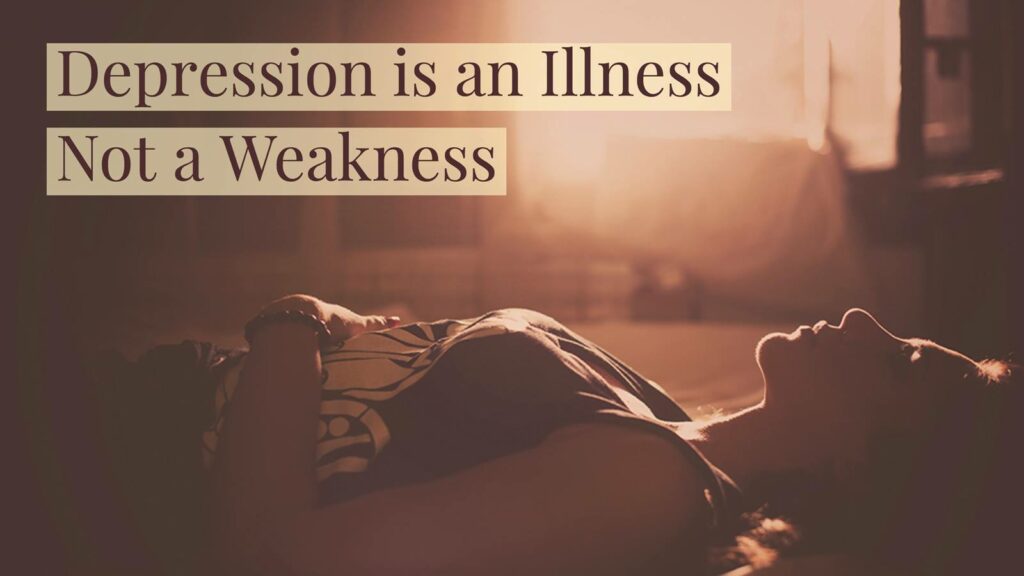Depression is a serious health problem. It can happen to anyone, of any age or race. People are sometimes ashamed to talk about their feelings or they don’t know how to tell what depression is. Depression has many different types; some of the most common ones include major depressive disorder (MDD), dysthymia, postpartum depression (PPD), and seasonal affective disorder (SAD). This article will talk about different types of depression. Tell people it is okay if you feel sad, and then they can help you.
Contents
- 1 Deeper Glance To Depression
- 2 Types Of Depression And Their Symptoms
- 2.1 Major Depressive Disorder (MDD)
- 2.2 Seasonal Affective Disorder (SAD)
- 2.3 Bipolar Disorder
- 2.4 Persistent Depressive Disorder (PDD)
- 2.5 Postpartum Depression
- 2.6 Psychotic Depression
- 2.7 Premenstrual Dysphoric Disorder
- 2.8 Situational Depression
- 2.9 Atypical Depression
- 2.10 Treatment-Resistant Depression
- 3 Conclusion
Deeper Glance To Depression
Depression is a state of feeling very unhappy or despondent. It can affect anyone, and its symptoms vary. It is a serious problem that needs treatment as soon as possible.
There are many different types of depression. Some of the most common types include major depressive disorder (MDD), dysthymia, postpartum depression (PPD), and seasonal affective disorder (SAD). However, there are other kinds of depression such as psychotic depression or bipolar-related depressions. People with these illnesses normally need special treatment like antidepressants and mood stabilizers for treating their conditions properly.
This article will talk about different types of depression in detail so people know how they feel better when dealing with it by themselves or seeing a doctor if necessary. Depression affects daily lives greatly too because without proper medication one cannot do anything properly. Depression should be taken seriously because it can affect lives in a very negative way, so if you know someone who is suffering from depression then encourage them to see a doctor as soon as possible!
Types Of Depression And Their Symptoms
Major Depressive Disorder (MDD)
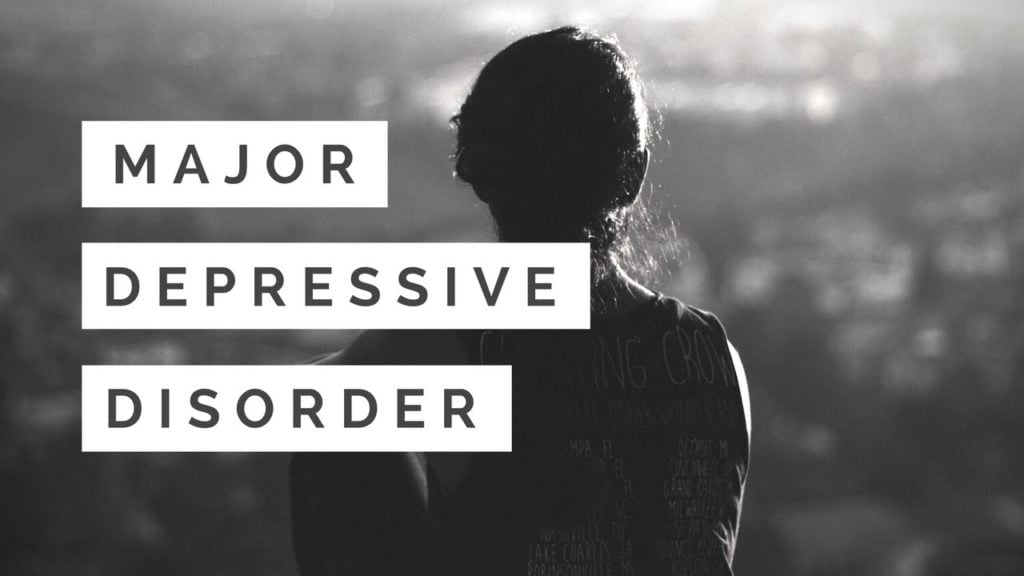
This type of disorder makes a person feel sad. It lasts for a long time without going away. People often think about suicide when they are feeling bad. This is especially true for teenagers who do not have good treatment available to them.
Symptoms of MDD
- Insomnia
- Loss of interest in daily activities and hobbies
- Feeling worthless, guilty, or empty
- Lack of concentration and motivation for work or school projects.
Causes of MDD
Numerous studies have been done to determine the causes of major depressive disorder. Despite a lot of effort, people do not know what triggers depression in a person. Some people say that heredity is the main cause, but other people think that stressful life events can trigger mental illness. Some people have a mental illness called Major Depressive Disorder. Even if we don’t know what causes it, people should still get help before they get worse.
Treatment
Some people with Major Depressive Disorder (MDD) do not respond well to therapy. So therapy is usually combined with taking medication like pills which could last for six months or more depending on how long your MDD lasts.
Seasonal Affective Disorder (SAD)
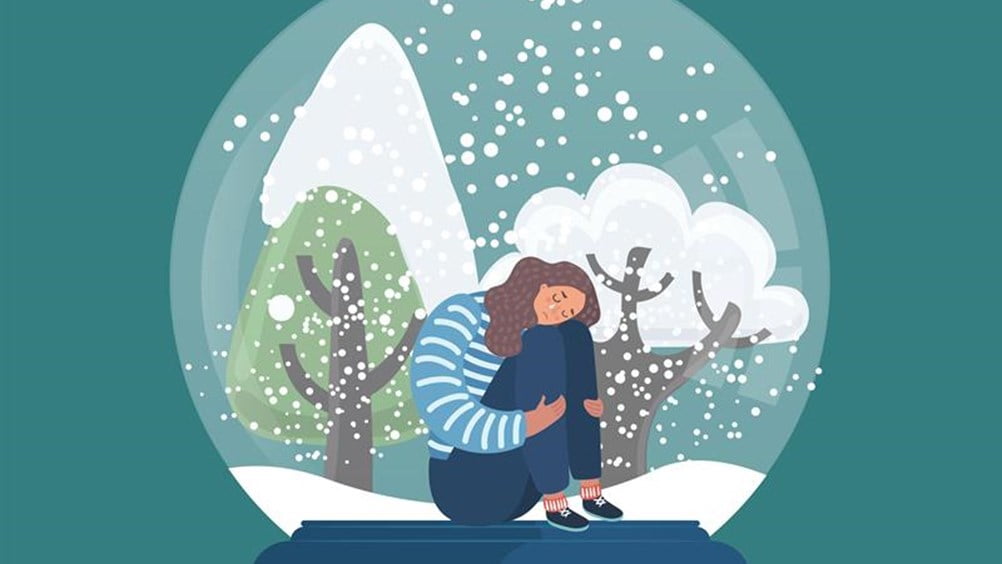
People who have this disorder experience period when they are sad. It can happen during the winter months. SAD affects mostly women and usually starts in early adulthood. It can be confused with teenage depression which is not really SAD but might be something else instead. Symptoms are different from major depressive disorders because symptoms are worse during fall, winter, and spring when there is less sunlight. This causes changes in hormones which lead to feeling sad all year. There are no stressful factors for people who have chronic depression.
Symptoms of SAD
- Sadness
- Intense feelings of wanting to be alone, no interest in activities that usually are fun.
- Loss of energy and motivation for work or school projects.
Causes of SAD
Light: It is thought that lack of sunlight causes the symptoms. This means it’s not a psychological disorder but more biological or chemical instead. People who have the condition known as SAD often feel worse in the winter. They may also feel bad on cloudy, rainy days. If someone has depression all year long, they might have chronic depression. But if they only have it in the fall/winter time, then they might be dealing with Seasonal Affective Disorder (SAD). It can affect people in North America too. People in Europe have different amounts of daylight at different times of the year. There is no one specific reason, but scientists think it could be because of the change of seasons and the lack of sunlight.
People with this disorder are sad. They are mostly women in their early adulthood. They start feeling these symptoms in the fall/winter months. A person can get confused with teenage depression which is not really SAD but might be something else. Chronic depression is different from major depressive disorder because there are no stressful things that happen to people with chronic depression during winter or summer.
Treatment
There is no known treatment for this type of depression except changing the season when it is brighter out than usual. Some people feel worse during winter because there is less sun. This might cause them to stay inside more often, which causes them to have less light as well. This makes their symptoms worse. They need help before summer comes in. Seasonal Affective Disorder (SAD) can go away on its own after a few years too without any changes being made.
Bipolar Disorder
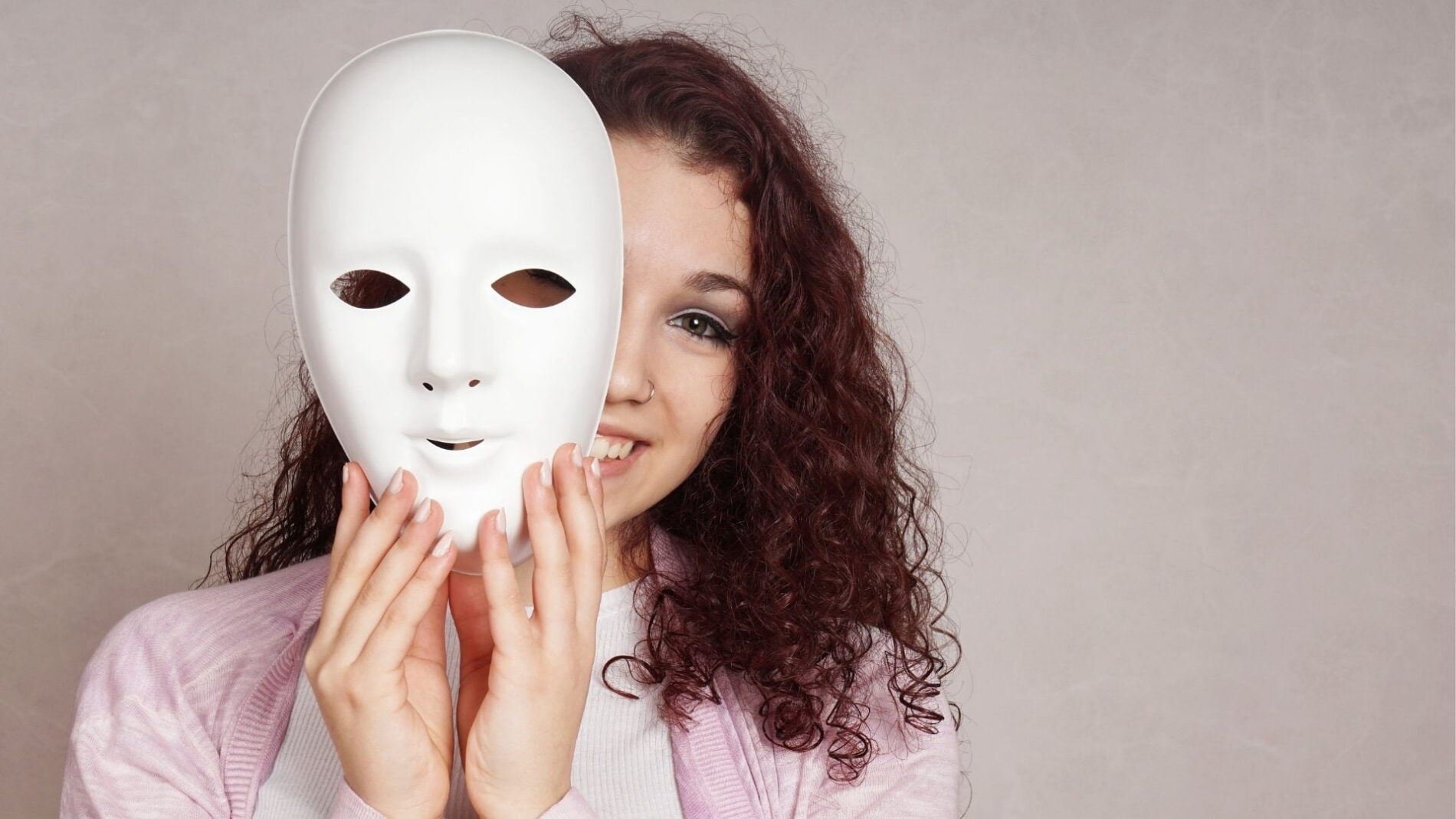
This is called manic depression because people feel really happy and then really sad. The cycle goes on and off for many years or even decades in some cases. People with bipolar disorder can go for days without sleeping. When they are feeling depressed it is hard to get out of bed in the morning. The treatment needs to include medications that will help them sleep at night too. These types of medication can’t be taken with alcohol. Drinking alcohol when taking these types of medications can cause serious problems like seizures if the dosage is not correct all day. Symptoms usually start during early adulthood but can begin in childhood. There is no one type of depression that people get depressed when something bad happens and they will be fine later on after the crisis has passed.
Symptoms
- can include feeling very sad, anxious, or empty most days of the week
- feeling worthless or guilty about things you shouldn’t feel this way about
- Changes in sleep patterns can cause people to not be able to sleep at night. This means that they will need to sleep during the day instead. Sleep changes also lead to other changes. People might gain weight and have different appetites too, for example.
A person with bipolar disorder might start eating a lot for no reason and then stop eating when they feel their mood come down.
Causes
There is no single cause for bipolar disorder. It seems to run in families, but even then it doesn’t always show up. Sometimes people with bipolar disorder can have a stressful event that brings out the symptoms of this type of depression-like getting fired from your job or losing someone close to you.
Treatment
The treatment needs both medicines and psychotherapy as well as healthy habits like eating right, exercising regularly, and sleeping at night time. Some types of medication cannot be taken together. Before taking one, make sure that you are not taking any other medications for the same condition. If you do, there might be a problem later on down the road.
Persistent Depressive Disorder (PDD)
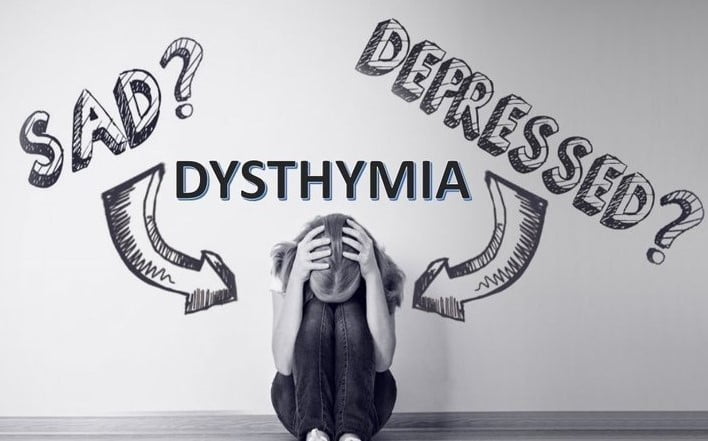
This is a type of depression that people will feel for at least two years. It can be hard to treat this because it doesn’t always go away when other things in your life get better (for example, when you get married or have kids).
Symptoms of PDD
People with PDD can have a very sad or empty mood, lose interest in things they used to enjoy doing, and feel guilty about things that aren’t their fault. They also might not be able to sleep at night or eat much during the day even though it is hard for them to get out of bed every morning.
Causes Of PDD
This type of depression is not always known. Sometimes people will get better after having an illness like heart disease, cancer, stroke, multiple sclerosis (MS), lupus, Alzheimer’s Disease, or another condition. Sometimes medicines can make you feel down. If this happens, tell your doctor right away and they will change them for other ones.
Biological factors could cause persistent depressive disorder and these types of disorders might run in families too. If someone else has this condition, then there is a chance you could get it later on. People with PDD may also have other mental illnesses that are related- like anxiety. People with bipolar disorder also share some of the same symptoms.
Treatment
Some medications help this type of depression but they need to be taken long-term. It can take six months or more for these medicines to work. Do not stop taking them before then. There will be bad things if you do stop the medicine too soon. If someone does not like the medication, they can take a different one that might work. Some meds make people feel weird. All meds have side effects, which could include weight gain and sexual problems for both men and women. Talk to your doctor right away if you take medicine or other drugs. You will need to tell them if anything changes. Sometimes supplements like St John’s Wort, SAMe, or omega-three fatty acids work for depression too.
People with Parkinson’s disease can also see a therapist. Sometimes this is called group therapy. If you are lonely, the therapist can help you. They will ask questions so they know what to do next. At first, it can be hard to get out of bed. This is because your feelings might affect you every day. But if you stick with it, some days will be easier than others and you’ll have more hope that they won’t affect everything so much anymore. You can learn skills such as problem-solving, communication techniques, stress management strategies, and how to manage your thoughts when they are negative- things that come along with PPD too.
Postpartum Depression

Some people feel sad after they have a baby. It usually starts with four weeks of the baby being born, but sometimes it happens later. Doctors do not know why this happens. Some think that maybe it is because of the different hormones in your body when you are pregnant or have a baby. After getting pregnant women’s bodies change so they often overwhelm even when their lives are better.
Symptoms Of Postpartum Depression
- Sadness
- exhaustion
- difficulty sleeping
- anxiety
- irritability & anger
- agitation/restlessness
- difficulty concentrating or making decisions
- loss of interest in activities that you used to enjoy
- low energy and feeling guilty about not being able to do things for your baby, partner, and other family members.
Causes of Postpartum Depression
- Stress
- Personal or family history of depression
- Problems in your relationship with your partner, husband, boyfriend.
- Marital/relationship problems can be a sign of postpartum depression for some women.
Sometimes it is hard to tell if you are having problems because you just had a baby and everything seems different now or whether there really were issues before the baby was born that made things harder than usual after the birth. This too will change as we get older but we still live them daily through our thoughts which play out like movies and dramas inside us even though they may not be happening at all in reality. One minute we believe ourselves to exist within these feelings and emotions until one day what happens? We find ourselves in a new space and find it so strange that we did not notice until now. We keep on repeating the same patterns over again, but why?
Treatment
Some people think that postpartum depression is not real or there is no treatment for the same. It exists and the treatments are therapy and medication. When you have a baby, your partner may sometimes feel sad. They can’t help take care of the baby all day because they also need to work too. Some people feel sad after their baby is born. It is “the baby blues” and it can make some people feel sad for a while, but not everyone gets the baby blues. Some people start to feel better in a few days or even sooner than that. If you don’t start feeling better, then you should get help from somebody who knows about this problem.
Psychotic Depression

Psychotic Depression is a severe form of depression that can lead to hallucinations or delusions. These are false beliefs. They can make people’s lives hard because they do not see reality. Some people might believe they have special powers, like being able to fly after jumping out a window. Hallucinations are hearing voices when no one else is around telling you what to do or commenting about your behavior. You may also hear sounds from outside coming into your head (like ringing in the ears) or see things that aren’t there. Or you might have a feeling of being very powerful so that nothing can hurt you.
Symptoms Of Psychotic Depression
The symptoms of postpartum psychosis are similar to other types of psychotic disorders and may include the following:
- Delusions -Grandiose thinking (feeling like you’re someone very important, for example)
- Paranoia (a feeling that people are out to get you or hurt you in some way)
- Hallucinations (seeing things or hearing voices when no one is there)
Causes Of Psychotic Depression
Postpartum psychosis can be caused by many factors. It may happen because of changes in the body. The blood vessels are inflamed and there is an imbalance of hormones. However, postpartum depression can happen when someone has a new baby. It is also caused by sleep deprivation. The cause isn’t known but certain genes might play a role too. Some women have also experienced psychotic depression before they were pregnant.
Treatment
Antipsychotics are the main treatment for psychotic depression as they reduce hallucinations, delusions, and paranoia. Some antidepressants can help you feel better. They won’t make you sleepy or change how alert you are. Talk therapy is better than drugs because it helps people with their problems and teaches them how to cope with them in the future. Usually, women will need to go to the hospital when they have postpartum psychosis. This is so they can get help and not become too sick.
Premenstrual Dysphoric Disorder
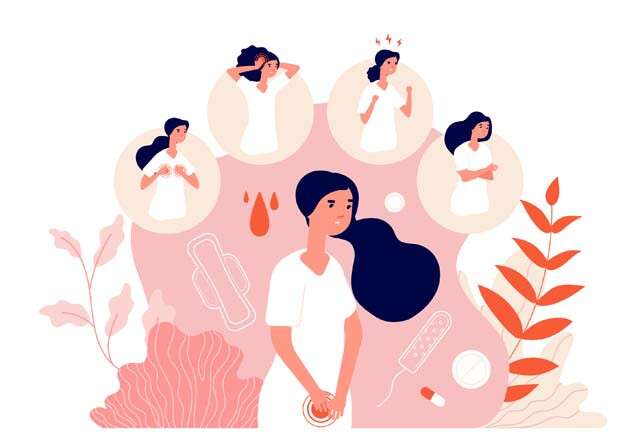
PMS is a group of symptoms that affect women during the week before their menstrual periods. PMS is a severe form of these symptoms, but not everyone with PMS has it. The symptoms of PMS usually go away as soon as a period starts. Premenstrual dysphoric disorder (PMDD), however, is more severe and lasts the entire month. The main symptom is depression that interferes with daily life.
Symptoms of Premenstrual Dysphoric Disorder
Symptoms can include:
- Mood swings
- Feelings of sadness or emptiness
- Anxiety and tension
- Agitation or anger for no reason
- Crying spells without an obvious cause; feeling sad or empty
- Changes in sleep patterns such as sleeping too much or not being able to sleep at all
- Feeling tired and unable to concentrate well enough for normal activities like work, school, housework, or childcare
These problems are sometimes so bad that women may be unable to perform their normal daily activities.
Causes of Premenstrual Dysphoric Disorder
Doctors aren’t sure what causes PMDD, but it’s likely to be related to the hormone changes that happen during your period. It may also have something to do with brain chemistry or how a woman reacts to her changing hormones.
Treatment
There are several treatment strategies for women with PMDD. Treatments for this disease are usually lifestyle changes, medications, and other therapies that can help you manage your symptoms better. You can try these steps if your doctor thinks they might be helpful:
- Eat a healthy diet every day with lots of fruits and vegetables
- Try not to eat too much sugar or drink caffeine
- Limit alcohol intake
- Exercise regularly for at least 20 minutes most days of the week
- Get plenty of rest each night
- Manage stress well
- Try keeping a chart so you can see what helps your moods
- Keep in mind that making some changes may take time for them to work
- Talk With Your Doctor
The symptoms of PMS will usually go away as soon as you start having periods again; however, if they’re bad enough and last long enough for them to interfere with daily life, talk with your doctor about treatments including:
- Birth control pills, which can reduce some symptoms by regulating hormones
- Anti-anxiety medications, such as duloxetine (Cymbalta) or venlafaxine extended-release (Effexor XR), which are antidepressants
- Anti-seizure medications , such as topiramate (Topamax)
Situational Depression
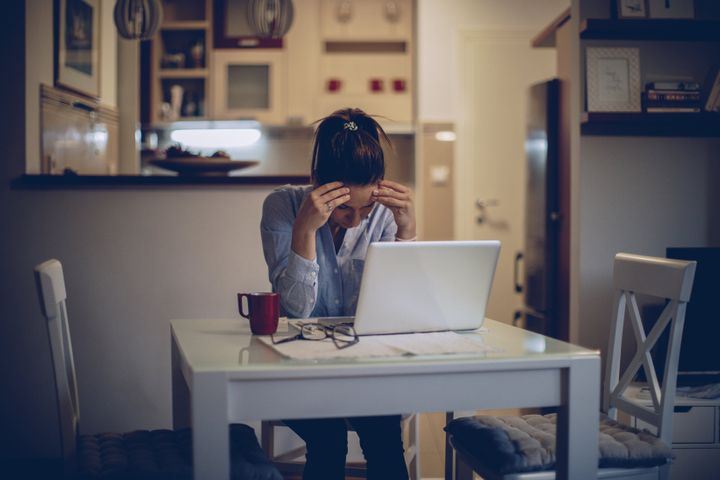
Situational depression is when you are sad because of something that happened. It can happen after someone dies or if you get divorced or lose your job. It can also happen if you have a major change in your life, like moving to a new country.
Situational Depression Symptoms
Symptoms of situational depression are similar to major depressive disorder. One difference is that the symptoms usually don’t last long, only a few days or weeks. Symptoms may include:
- Feeling sad or empty
- Loss of interest in daily activities you once enjoyed
- Blaming yourself for things that aren’t your fault; feeling guilty without reason often accompanies situational depression
- Trouble sleeping even when you’re tired; insomnia can be an early sign of this type of depression
- Change in appetite; either loss of appetite and weight loss or overeating and weight gain – especially around the time when your depressed mood began — are common with this condition. Feeling restless instead of sluggish like people typically feel in major depressive disorders
Causes of Situational Depression
Traumatic events such as the death of a loved one, divorce, or losing your job can trigger situational depression. So can medical conditions including stroke and Parkinson’s disease. Situational depression can be caused by drugs or alcohol. If you have depression that does not go away after two weeks, talk to your doctor. They can help you with different treatments.
Treatment
Medications aren’t usually used to treat this type of depressive episode because it only lasts for a short time under most circumstances; however, certain antidepressant medications might work well in some cases if symptoms continue longer than two weeks. If you have a problem with your mood and want to change that, then treatment is for you. Treatment helps people by making lifestyle changes, like exercise and healthy eating. Psychotherapy also helps stop depression from coming back.
People who are going through a hard time might feel sad and not know why. They should see a mental health professional make them feel better. The therapist may also prescribe medication for people with severe symptoms. In some cases, people can get better from depression just by going to therapy. But most people need both depression treatment and antidepressants.
Atypical Depression
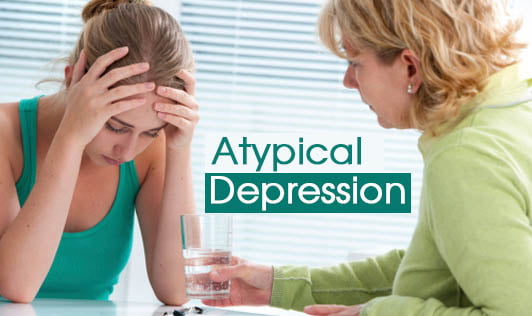
A type of depression that includes symptoms not typically associated with the illness. People with atypical types of depression might feel sad and irritable, be too sensitive to criticism, sleep too little or too much, have a big appetite and weight gain. This might make them less active. They can also complain about physical pain without any evidence for this being true.
Atypical Depression is hard to see because it does not look like other people’s ideas of what depression should be. People who have depression may be happy at work. Some people are shy. Others are more outgoing. The depressed individual is likely to have a history of being moody and hypersensitive.
Atypical depression is different from major depressive disorder because people with atypical depression do not feel very sad. Instead, they may feel angry or emotionally overwhelmed by small things that happen in their lives. This type of depression also affects men more often than women.
Symptoms of Atypical Depression
- excessive sleepiness or sleeping too much
- increased appetite and weight gain
- extreme sadness that does not go away no matter the circumstances
- feeling irritable, angry, or restless when in situations that are not overwhelming
- cannot concentrate on anything for long periods
- feelings of worthlessness and self-hate
- lack of interest in activities once enjoyed including sex life.
Causes of Atypical Depression
The cause of atypical depression is unknown. There are many theories about what causes this type of depression, but none have been proven yet.
Treatment
The treatment plan will depend upon the individual’s diagnosis. However, there are some available to help treat Atypical Depression. Some medications used to treat depression include tricyclic antidepressants such as Tofranil (imipramine), Elavil (amitriptyline), and Anafranil (nortriptyline). Other drugs that can be used alone or with other treatments to decrease feelings of sadness include antidepressant medications called serotonin reuptake inhibitors. These include Prozac (fluoxetine), Zoloft (sertraline) and Paxil (paroxetine). Lifestyle changes can also help with Atypical Depression.
Treatment-Resistant Depression
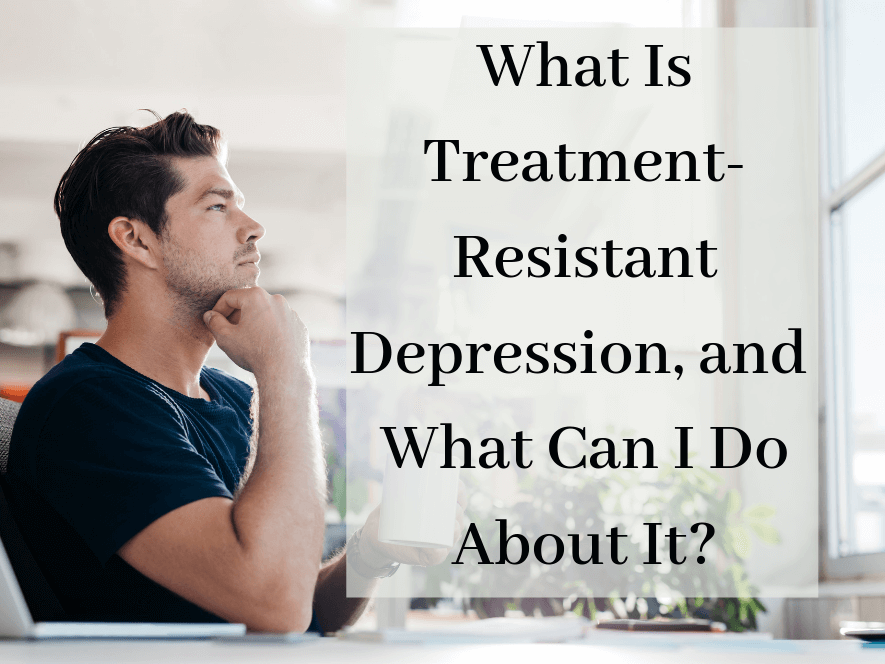
Treatment-Resistant Depression is a type of depression that does not respond to treatment. This can be frustrating when you have tried all the treatments and still do not feel any relief from your symptoms. Many Americans have depression. The most common type is treatment-resistant depression. It affects about 15% of the population in America. People with this diagnosis can have trouble at work, school, and with their friends and family. Everything they do seems hard because the episodes of depression are so bad. People with depression often turn to drugs and alcohol. This only makes the problem worse by giving them another problem on top of their depression.
Symptoms of Treatment-Resistant Depression
Symptoms vary based on the person. Some common symptoms include:
- feeling tired all the time or sleeping too much no matter how hard they try to do anything
- feeling hopeless, sad, and worthless
- having strong feelings of guilt
- not wanting to be around friends or family because their mood is so low
- lack of appetite that leads to weight loss or overeating
- thoughts about death or suicide self-harm (cutting)
- racing mind (thoughts are moving quickly)
- trouble concentrating
- suicidal thinking
Causes of Treatment-Resistant Depression
Some causes may include:
- medication side effects
- illness other than depression
- emotional trauma
- genetics
- misdiagnosis
- unresolved grief
- physical health problems
- environmental factors
- losing a loved one
- lack of support from family members
- job stress
- relationship issues
Treatment
There are also many treatment options. These include therapy, counseling, and medications. The type of treatment depends on the person’s diagnosis as well as their physical health condition.
A person who is depressed may need to go to the hospital if they have thoughts about hurting themselves. They might not be able to manage it any other way, so home remedies or therapist visits may not work. Someone you love might be suicidal. If they do not take their own life, you will feel bad because they are hurting. You should help them so they don’t hurt themselves or others. This is crucial because it could save your loved one’s life!
Conclusion
Depression is a serious illness that affects many people. This blog post discussed some types of depression and how to recognize the symptoms, but it’s important to understand that there are different types of depression and everyone responds differently. If you think you or someone else may be depressed, please seek help from a medical professional as soon as possible before things get worse!
For more information, please contact MantraCare. Depression is a mental illness characterized by persistent feelings of sadness, hopelessness, and loss of interest in daily activities. If you have any queries regarding Online Depression Counseling experienced therapists at MantraCare can help: Book a trial Depression Therapy session
